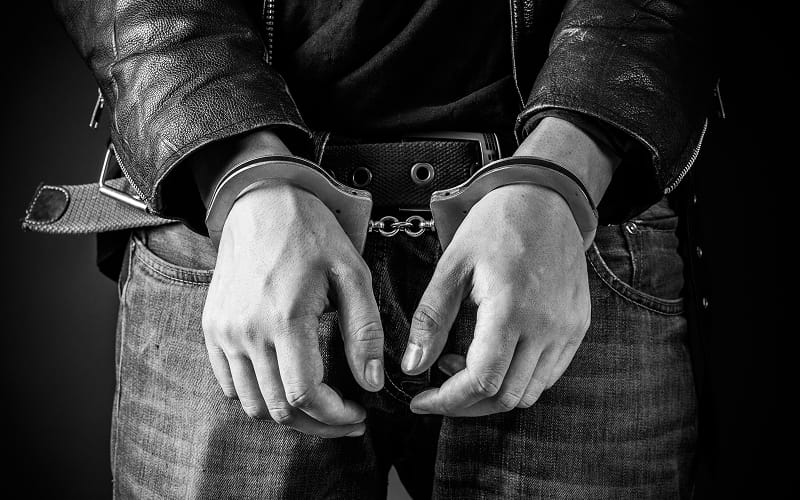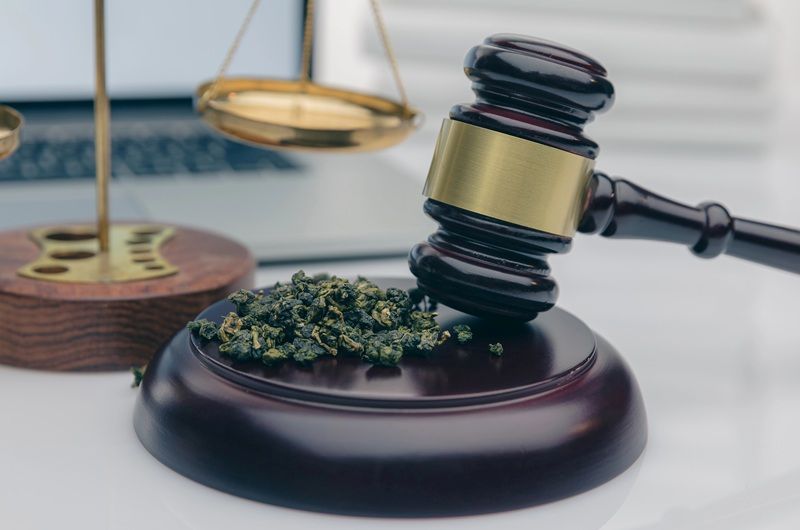Petty theft, or petit larceny, may seem minor in Fairfax County, but a petty theft conviction can create lasting legal and personal consequences. A criminal record can impact employment, housing, and even future legal cases, particularly for individuals already facing drug possession charges. Understanding the full scope of penalties and impacts is critical.
This article explains Virginia’s laws on petty theft, its legal classification, and its long-term consequences. It also explores how theft convictions interact with drug charges and why legal representation matters. Finally, it explains how The Irving Law Firm provides aggressive defense strategies.

Defining Petty Theft In Virginia
Virginia law defines petty theft under the Code of Virginia. This charge applies when someone unlawfully takes property worth less than $1,000. If the stolen item is valued at $1,000 or more, the charge escalates to grand larceny, which carries harsher penalties. Petty theft covers two main scenarios:
- Taking money or items worth less than $5 directly from a person (e.g., pickpocketing).
- Taking goods worth less than $1,000 from a store, home, or other location (e.g., shoplifting).
While grand larceny and burglary involve higher-value thefts or illegal entry into homes or businesses, petty theft still carries serious legal consequences. Even though the value of the stolen property may seem minor, a conviction can have lasting effects on your life.
People may underestimate the damage a petty theft charge can cause. Even for a first offense, penalties may include jail time, fines, and a permanent criminal record. These consequences can affect job prospects and housing applications. Understanding the stakes is essential for anyone facing a petty theft charge.
A conviction can lead to harsher penalties for future offenses. Courts impose stricter sentences on repeat offenders, and multiple convictions can turn a misdemeanor into a felony. Knowing the long-term risks is critical to protecting your future.
Consequences Of A Petty Theft Conviction
In Virginia, petty theft is a Class 1 misdemeanor, the most serious type of misdemeanor offense. This classification means that even a first-time offender can face substantial penalties, including potential jail time and fines. A conviction for petty theft can lead to:
- Jail time: Up to 12 months in a county jail.
- Fines: Up to $2,500 in penalties.
- Restitution: Courts may require offenders to compensate victims for stolen property.
Courts consider an individual’s criminal history when determining penalties. First-time offenders may receive lighter sentences, such as probation or community service. However, repeat offenders often face harsher consequences, including longer jail sentences and increased fines.
A petty theft conviction becomes part of your permanent criminal record. If you face drug possession charges in the future, prosecutors and judges may view you as a repeat offender, increasing the likelihood of stricter sentencing.
A petty theft conviction doesn’t just result in fines or jail time it creates long-term challenges. Beyond legal penalties, it can affect job opportunities, housing, and education. These lasting consequences can make rebuilding your life difficult, even after serving your sentence.
Collateral Consequences Beyond Legal Penalties
A petty theft conviction can have lasting consequences far beyond the courtroom. Understanding these collateral consequences is essential, especially for those also facing drug possession charges. Addressing the full scope of a conviction’s impact can help individuals take proactive steps to protect their future.
Employment Challenges
A petty theft conviction can make finding a job incredibly difficult. Many employers run background checks and refuse to hire applicants with theft-related offenses. Industries like retail, finance, and government have strict policies against employing individuals with criminal records, reducing available opportunities.
Jobs that don’t require background checks can be hard to land because of the stigma attached to a theft conviction. Employers may worry about trust and liability, making them hesitant to take a chance. It forces many individuals into lower-paying, unstable work or prolonged unemployment, creating financial hardship.
Housing Difficulties
Many landlords hesitate to rent to individuals with criminal records, especially those involving theft. A petty theft charge on a background check can result in immediate application denials. It forces many people to search for alternative housing options, often with limited success.
Without access to stable housing, some must turn to short-term rentals, overcrowded living spaces, or even shelters. These options make establishing a permanent residence, securing employment, or rebuilding financial stability difficult.
The constant uncertainty creates additional stress, making it even harder for individuals to move forward after a conviction.
Education Barriers
Colleges and universities frequently consider criminal records during admissions. A theft conviction can block students from entering specific programs and lead to financial aid loss, including federal grants and scholarships. This setback makes higher education less accessible and limits future career opportunities.
Beyond financial aid, students with convictions may face housing restrictions, losing access to on-campus dorms or work-study jobs. These barriers make it harder to fully participate in college life, forcing some to commute long distances or juggle multiple jobs just to stay enrolled.
Social Stigma & Personal Consequences
Beyond legal and financial difficulties, a criminal record can damage personal relationships and social standing. Friends, family, and colleagues may view an individual differently after a conviction. This stigma can lead to isolation and lost opportunities. It may also impact mental health, making it harder to rebuild a stable and fulfilling life.
Legal penalties are only part of the problem. A petty theft conviction can follow you for years, making it harder to build a stable future. Now, examine how petty theft charges often connect to drug possession cases.
The Connection Of Petty Theft & Drug Possession Charges
Many people arrested for petty theft also face drug possession charges. Some individuals steal to support a substance dependency, while others may be caught with drugs when detained for theft. Law enforcement often treats these cases more seriously.
Courts may impose harsher penalties when a defendant has multiple charges. Prosecutors could argue that drug use contributed to the theft, leading to increased sentencing recommendations. Judges may also be less inclined to grant leniency to individuals with prior offenses.
When facing petty theft and drug possession charges, a strategic defense approach is required. A Fairfax County criminal attorney can effectively address both charges to minimize overall penalties. This complexity makes legal support and representation even more critical.
Defending Against Petty Theft & Drug Charges
Facing petty theft and drug charges is challenging, but the right defense strategy can make all the difference. A strong legal approach challenges the prosecution’s case, protects your rights, and increases the chances of reducing or even dismissing charges. Knowing your defense options is critical when your future is on the line.
Challenging The Evidence

Prosecutors must prove theft or drug possession beyond a reasonable doubt. Defense attorneys analyze surveillance footage, witness statements, and police reports to find inconsistencies or legal violations. Unlawful searches or improper arrests can lead to the dismissal of the evidence, weakening the prosecution’s case.
Questioning Intent
Intent plays a critical role in both petty theft and drug possession cases. A strong defense may argue that the accused did not intend to steal or that they unknowingly possessed the drugs. For example, a lawyer might prove that an individual mistakenly left a store with unpaid merchandise or was unaware of drugs found in a shared vehicle or residence.
A strong defense can help avoid long-term consequences, such as a criminal record, jail time, and fines. These charges can severely impact your job prospects, housing options, and overall stability without the proper legal strategy. Quick action is critical to protecting your rights.
The sooner you hire an attorney, the better your chances of achieving a favorable outcome. They can negotiate with prosecutors to reduce charges, advocate for alternative sentencing programs, or even seek a case dismissal. The Irving Law Firm is ready to fight for your defense and help you move forward.
The Irving Law Firm Advocates For Your Rights
At Fairfax County Criminal Attorneys, we know how stressful and life-changing criminal charges can be. Our team fights aggressively to protect your rights, whether you’re facing petty theft, drug possession, or both. We work to reduce penalties, challenge the prosecution’s case, and seek dismissals whenever possible.
With extensive experience in petty theft and drug possession cases, we develop strategic defenses for each client. We examine evidence, challenge law enforcement errors, and negotiate with prosecutors. Every legal move we make strengthens your case and increases your chances of a better outcome.
No two cases are the same, so we take the time to understand your situation. Our attorneys fight tirelessly to minimize the impact of a conviction on your future. The sooner you reach out, the better your chances of securing a favorable resolution.
A petty theft conviction carries serious legal, financial, and social consequences. The penalties become even more severe when combined with drug possession charges. A criminal record can limit job prospects, housing options, and educational opportunities, making it essential to fight these charges.
The Irving Law Firm provides aggressive, personalized defense strategies for individuals facing theft and drug-related offenses. Our team works diligently to protect your rights, challenge the prosecution’s case, and minimize penalties. If you need legal help, don’t wait contact us today and start building your defense. Your future matters, and we’re here to fight for it.




